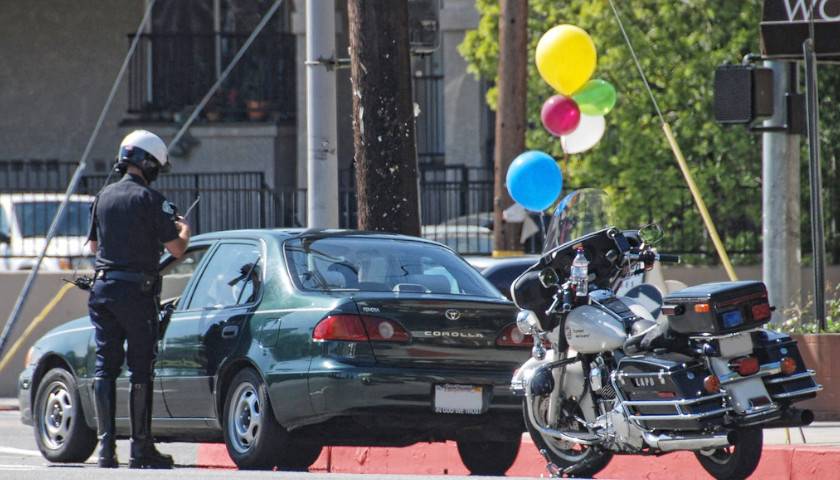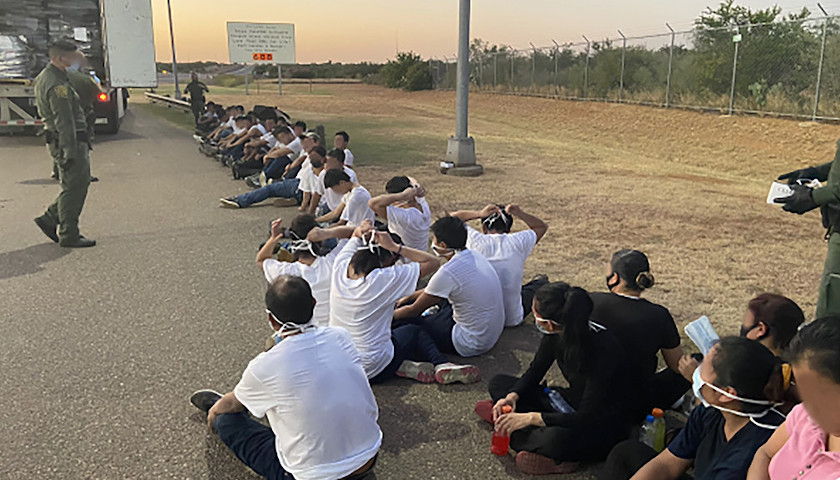by William McVey
In the early morning hours of March 30, 2022, an innocent victim was suddenly attacked while he was putting the trash out at his place of work in Bensalem, along Street Road. The victim ran for his life but was eventually caught by his attacker. He was viciously stabbed over fifty times as he tried to resist. The assailant fled as the victim struggled to stay alive in the parking lot. He then returned in a vehicle, ran the victim over twice, abducted him, and drove off.
Bensalem Police received a 911 call about six hours later, when an employee arrived at work and discovered clothing and blood in the parking lot of the business. Over the next 48 hours, the Bensalem Police Department, with the assistance of the Bucks County District Attorney’s Office, the FBI, and the Philadelphia Police Department, worked diligently together to solve this case.
The victim was identified as Michael Pickens, an employee of a local restaurant along Street Road. The initial investigation led police to believe that the attacker was Dominique Harris, a former employee of the same restaurant. Through use of video surveillance, license plate readers, and intersection cameras, Bensalem police were able to determine the route Harris fled in his vehicle with Pickens as he headed south to Philadelphia. Information was shared with surrounding jurisdictions, and Harris’s vehicle was entered into the National Criminal Intelligence Center as “wanted” by Bensalem police. A Bensalem patrol corporal discovered the deceased body of Pickens in the brush along the Cornwells Heights Park and Ride. Harris had dumped the body of Pickens as he fled after the murder.
Within 24 hours of the murder, two 35th District Philadelphia police officers stopped a vehicle driven by Harris. Harris’s criminal acts and his vehicle’s involvement were not known to them. They stopped Harris for improper display of his vehicle’s registration plate. They observed fresh blood stains on the vehicle and in the rear seat. They then checked the identification number and discovered that the vehicle was wanted by Bensalem police as part of a homicide investigation. Harris was arrested and charged with murder.
Prior to his trial, Harris’s attorney attempted to have all the evidence located in Harris’s vehicle suppressed on the basis that the initial traffic stop was in violation of the City of Philadelphia’s Driver Equity Ordinance. This ordinance prohibits officers from enforcement of eight minor traffic offenses, one of which is improper display of a registration plate. That motion was rightfully rejected by Judge Raymond McHugh in the Court of Common Pleas of Bucks County. Harris was later found guilty of first-degree murder and sentenced to life in prison.
What would have occurred if this case were held in a Philadelphia courtroom? Would the motion to suppress the car stop and all the evidence discovered therein have been granted? Would that be considered justice under the law?
This case exemplifies the importance of proactive patrol work and traffic enforcement for all violations. The officers stopped the car for a minor traffic offense and by doing so, took a killer off the street and recovered critical evidence to help prosecute the case. The Driver’s Equity Ordinance was enacted 27 days prior to the murder of Pickens in March of 2022. It’s likely the officers didn’t fully grasp the restrictions of the law yet, or if they did, they felt that the stop was still justified. Either way, this is the real danger with the Driver’s Equity Ordinance. It will either cause officers to look the other way when they observe legitimate violations of the state Motor Vehicle Code or take their chances stopping a vehicle only to have it dismissed in court and possibly face ramifications for violating the ordinance.
It’s well established in the policing world that proactive police techniques, and vehicle stops in particular, keep communities safe. When you remove the ability of police to do their jobs effectively, it makes communities less safe. And that is what we’re seeing now.
According to the National Highway Traffic Safety Administration, the fatality rate on U.S. roadways is 18% higher than in 2019. The reduction of traffic enforcement across the country due to policies that limit police encounters on the road and take away enforcement rights has to be considered as a factor in this increase. In addition to the increased dangers on the road, banning police officers from enforcement for certain offenses has led to more lawlessness on our streets. Fear of consequences has diminished among criminals, who often drive with impunity. We’ve seen a drastic increase in the number of drivers who have fled from police – in Bensalem Township, a 96% increase since last year and over a 2,000% increase since 2019. Fleeing and eluding police is an alarming trend that puts lives in immediate danger.
In Bensalem Township, our Patrol Division has increased its traffic enforcement by more than 30%. We credit our officers’ efforts with maintaining and lowering most of our current crime rates. Proactivity by police helps to deter crime, detect crime, and prevent victimization. Our patrol officers have seen an increase in illegal firearms possessed by convicted felons who were driving through our township. These felons were stopped for minor vehicle-code violations that would most likely not have been authorized in Philadelphia, though the Pennsylvania Motor Vehicle Code clearly identifies them as violations. Through the exceptional work of these officers, felons were removed from the street and their illegal guns were seized. This is how we keep communities safe – not stripping officers of their ability to enforce the law.
– – –
Director William McVey is a 25-year police veteran, holds a master’s degree from St. Joseph’s University, and is a graduate of Northwestern University School of Police and Command, as well as the Police Executive Research Forum’s Senior Management Institute for Police. McVey serves as an executive board member of the Pennsylvania Chiefs of Police Association, is the vice president of the Chiefs of Police Association of Southern Pennsylvania, and is an executive board member of the Bucks County Chiefs of Police Association.
The Bensalem Township Police Department is an accredited law enforcement agency through PLEAC (Pennsylvania Law Enforcement Accreditation Commission) and CALEA (Commission on Accreditation for Law Enforcement Agencies), which is the gold standard in policing.
Photo “Traffic Stop” by Chris Yarzab.CC BY 2.0.




